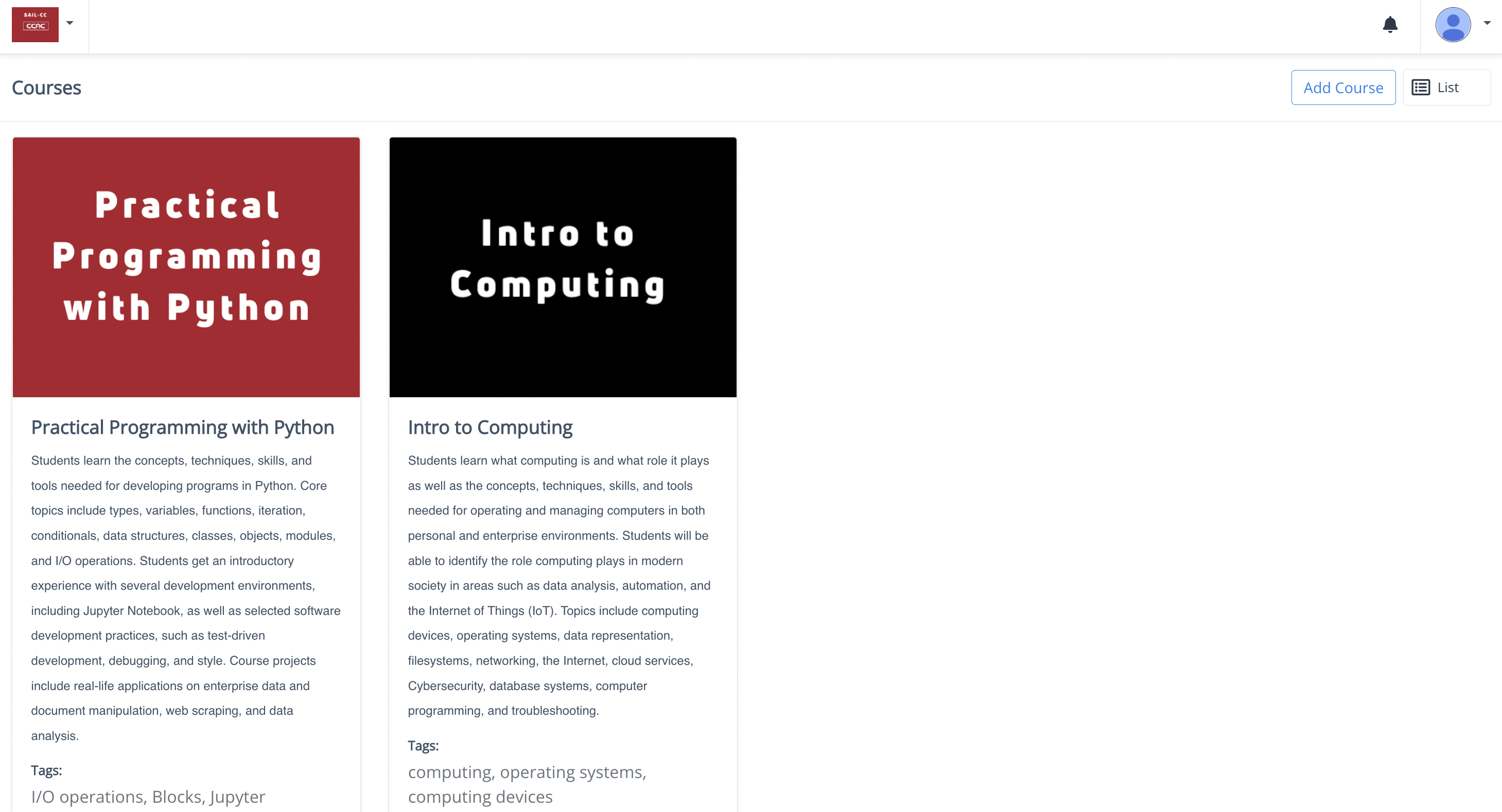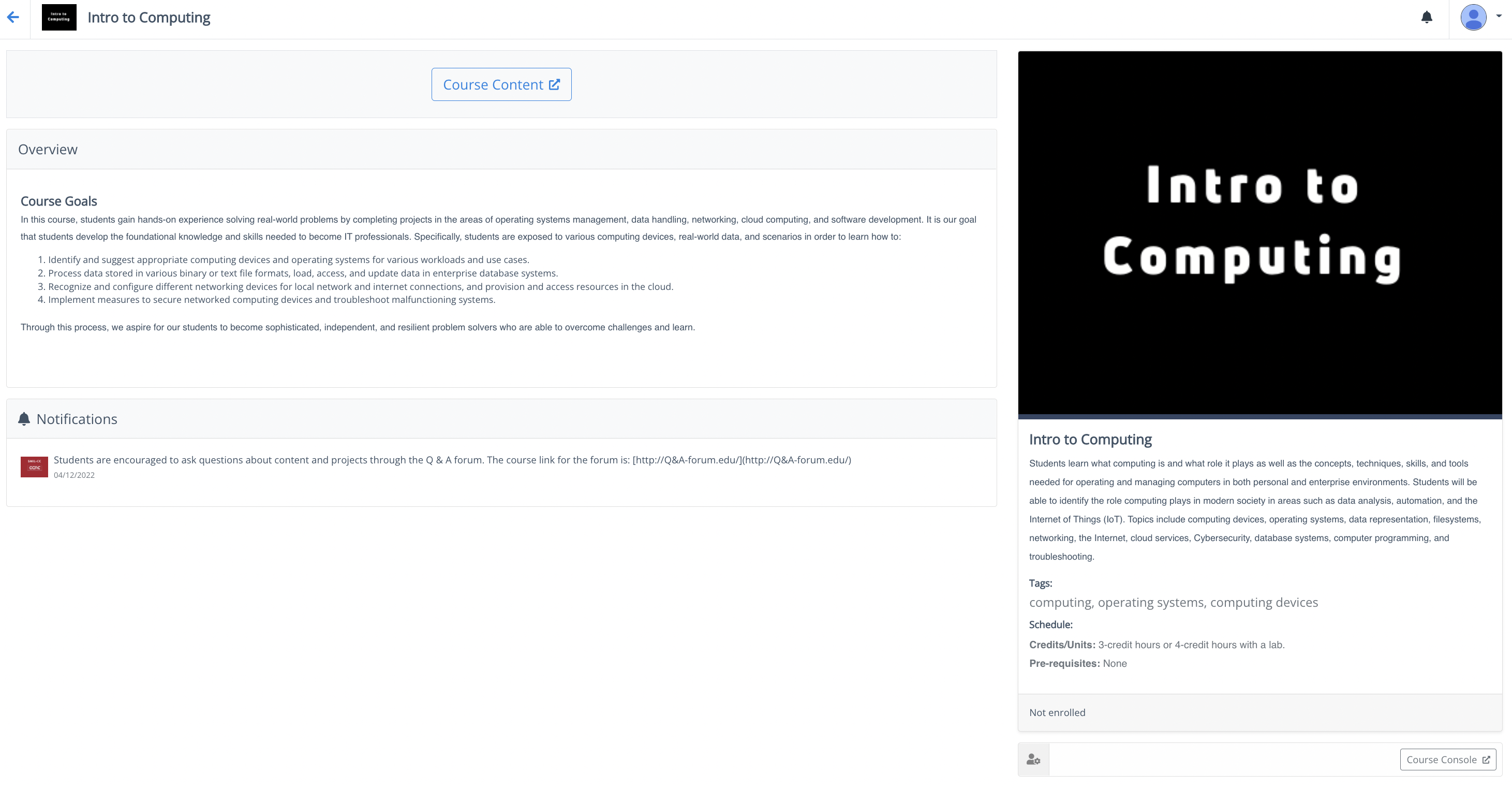Wed. Apr 20, 2022 - by Josh Studl
We’re excited to have been invited by the Community College of Allegheny County to support its participation in SAIL-CC, a 4-year project funded by the National Science Foundation to develop and deploy entry-level Computer Science/Information Technology curricula with community colleges for community colleges. SAIL-CC is an acronym for The Social and Interactive Learning - Community College and the program will also provide professional development for participating faculty, and conduct learning science research.
The SAIL-CC program is powered by Sail(), an AI-powered LMS developed by Carnegie Mellon University professor Majd Sakr. Professor Sakr leads a SAIL-CC platform team at CMU’s Block Center for Technology & Society. The compelling case for why community colleges are receiving the attention and resources from faculty at America’s top ranked Computer Science school was made clear in a Medium post from last December by the Block Center.
In 2021, there were more than 609,000 open computer science jobs in the U.S., while only 71,000 new computer scientists graduated from American universities last year. Given the limited workforce available to fulfill the growing number of jobs in emerging technology fields, to remain competitive, the nation desperately needs new methods to effectively train the workforce of the future.
Our community colleges, which currently number over 1,100 and train 11 million students represent a promising opportunity to help fill this gap, due to their focus on job-oriented student outcomes and programmatic alignment with employers’ needs. Faculty Spotlight: Professor Majd Sakr and the Sail() Platform
By the numbers presented in the Medium post, the US produced only enough new computer scientists last year to meet 11.5% of employer demand!
It makes sense that a platform like SAIL() with AI power would tackle the CS competency shortage. Even if the number of CS candidates doubled, could the academic system absorb them? Probably not. There probably aren’t enough CS instructors in American post-secondary institutions to yield sufficient supply to meet employer demand.
So where does Turbine Workforce come in?
CCAC asked Turbine to build a custom integration with Sail() to manage user credentials and receive performance metrics and grades passed back from Sail(). Professor Sakr has been kind to provide our dev team with documentation on Sail()’s APIs. We expect to have a custom integration to Sail() built in short order.
Presently Sail() supports integration with three commercial enterprise LMSes for user management (the brand names of two of these LMSes begin with the letter B, and one begins with the letter C). CCAC uses one of the Bs for its credit-side learning. CCAC’s Workforce department (non-credit-side) has saved thousands of hours of staff time with our automations, particularly enhanced attendance and automations for CEU tracking and certificate production.
But what won the day for Turbine here was our LMS’s ease-of-use for everyone: admins, instructors and non-credit students. Turbine just flat out delivers a better user experience than the Bs and Cs out there, and CCAC sees B’s leg of the customer capture relay as the weak point. And they’re right.
Turbine delivers a modern web user experience and B doesn’t. CCAC has some big plans for its SAIL-CC collaboration, and to those at CCAC Workforce, Turbine is the safer, higher upside option.
We’re very excited to scale the SAIL-CC course offerings within the CCAC Workforce catalog and to other Turbine customers via our syndication application.


CMU Learning Lab To Help Design, Develop Community College Computer Science Curriculum